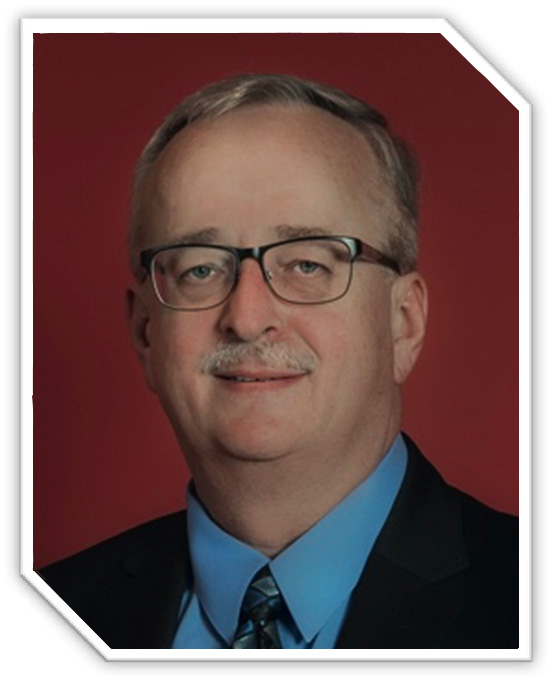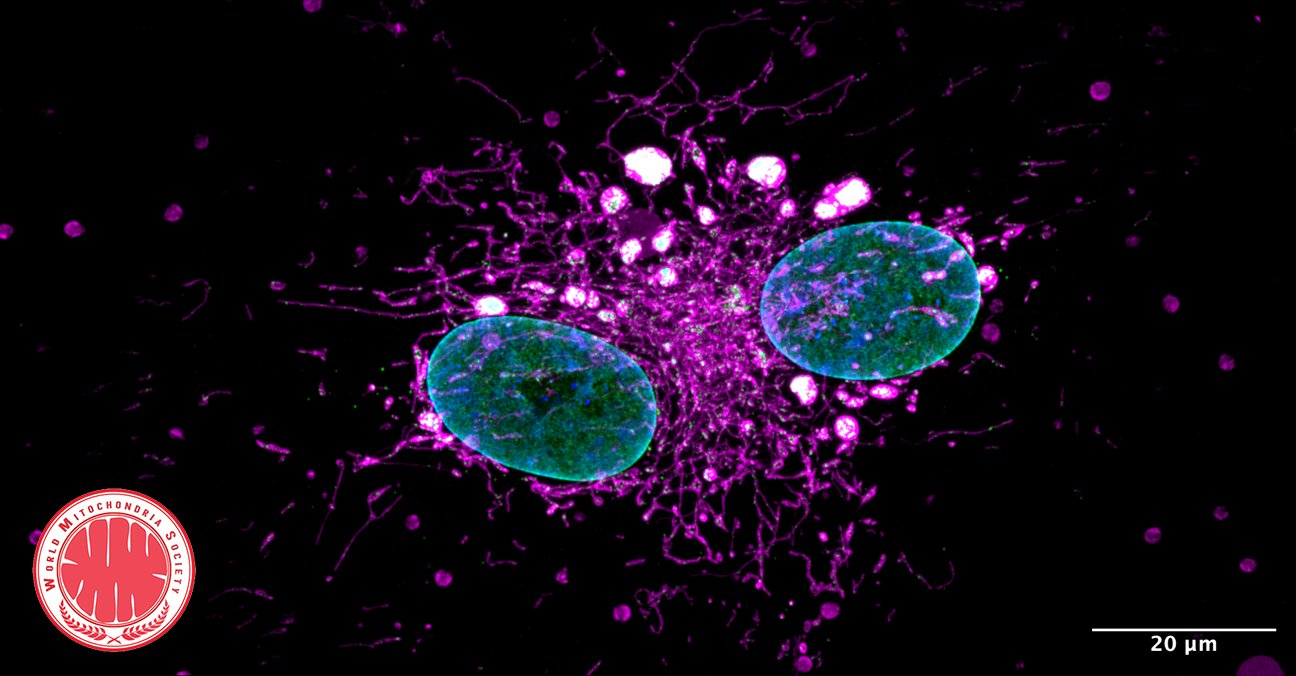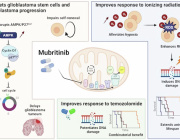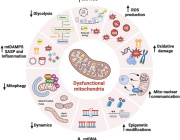The legal framework for mitochondrial therapy will be presented during Targeting Mitochondria Congress

Dr. Timo Faltus from the Martin-Luther-University Halle-Wittenberg, Germany will give a presentation entitled “The legal framework for mitochondrial therapy : Identifying and preventing legal pitfalls within the translation from bench to bedside” during the 9th World Congress on Targeting Mitochondria, which will be held at Steigenberger Hotel, Berlin on October 23-25, 2018.
According to Dr. Timo Faltus: "The therapeutic implementation of the various approaches of mitochondrial therapy is, irrespective of the therapeutic options, in the European Union and especially in Germany legally problematic. Certain versions of mitochondrial therapy may even be legally prohibited. These legal uncertainties and hurdles put successful translation of mitochondrial therapy at risk overall. Therefore, scientists should consider the issues of lawful development of mitochondrial therapy timely. The presentation will give an overview on the various legal questions of mitochondrial therapy from bench to bedside and will make scientists aware of legal pitfalls, to promote a successful translation of mitochondrial therapy".
Dr. Timo Faltus holds an Diploma of Biology (equivalent to a Master's degree) and a Diploma of Law, both from Goethe University Frankfurt, Germany. He also holds a doctorate of laws from Martin-Luther-University Halle-Wittenberg, Germany.
Currently, Timo leads the interdisciplinary research project GenomELECTION, which i.a. is concerned with the legal issues of genome editing. In addition, he collaborates with several research projects that develop cell-based therapies for various indications. In particular, Timo has specialized in regulatory issues of cell therapy, gene therapy, point-of-care therapy, and the use of medical devices to manufacture cell-derived pharmaceuticals within medical practices and hospitals.
For more information about Targeting Mitochondria 2018, please visit www.targeting-mitochondria.com
How to utilize a human hepatoma cell line to study off-target effects of drugs on mitochondrial DNA maintenance and bioenergetics?

The next 9th World Congress on Targeting Mitochondria, will welcome Dr Matthew J. Young from SIU School of Medicine in Carbondale, USA to talk about “Utilizing a human hepatoma cell line to study off-target effects of drugs on mitochondrial DNA maintenance and bioenergetics”.
According to Dr Young: "Evidence suggests anti-HIV nucleoside reverse transcriptase inhibitors (NRTIs) block the DNA synthesis activity of human DNA polymerases localized to mitochondria. Mitochondrial DNA (mtDNA) maintenance is important as mtDNA damage can induce cell death. Recently, NRTI drugs have been proposed to have anti-cancer properties. We are currently using a human hepatoma-derived cell line to investigate effects of drugs on cellular viability, bioenergetics, and mtDNA maintenance”.
Targeting Mitochondria 2018
October 23-25, 2018 - Berlin, Germany
www.targeting-mitochondria.com
Metabolic switches saving mitochondria from oxidative stress

Prof. Carsten Culmsee from Universität Marburg, Marburg, Germany will participate again in the Targeting Mitochindria 2018 congress and will talk about "Metabolic switches saving mitochondria from oxidative stress".
During the congress, Prof. Culmsee will present several examples of pharmacological and genetic approaches inducing bioenergetic switches from mitochondrial respiration to glycolysis which increase mitochondrial and cellular resilience against oxidative stresswith relevance to human diseases involving neurodegeneration and neuroinflammation.
For more information about Targeting Mitochondria 2018, please visit www.targeting-mitochondria.com
The mitochondrial link to cocaine addiction: recent scientific advances
 Mary Kay Lobo from University of Maryland School of Medicine, Baltimore, USA will talk about "The mitochondrial link to cocaine addiction: recent scientific advances" during the 9th World Congress on Targeting Mitochondria 2018 which will be held in Berlin next October 23-25.
Mary Kay Lobo from University of Maryland School of Medicine, Baltimore, USA will talk about "The mitochondrial link to cocaine addiction: recent scientific advances" during the 9th World Congress on Targeting Mitochondria 2018 which will be held in Berlin next October 23-25.
If you would like to know more about Targeting Mitochondria Congress: www.targeting-mitochondria.com
Mitochondrial potassium channels: new regulation mechanism?

Prof. Adam Szewczyk from Nencki Institute of Experimental Biology, Warsaw, Poland will present study on "Mitochondrial potassium channels: new regulation mechanism?" during the Mitochondria congress which will be held in October 23-25, 2018, at Berlin, Germany.
Prof. Szewczyk will present the most interesting issues regarding function, regulation and pharmacology of the mitochondrial potassium channels. There are eight potassium channels known to contribute to the potassium permeability of the inner mitochondrial membrane: ATP-regulated channel, calcium-regulated channels of large, intermediate and small conductance, voltage-regulated Kv1.3 and Kv7.4 channels, two-pore-domain TASK-3 channel and SLO2 channel. The primary function of the mitochondrial potassium channels is regulation of the mitochondrial membrane potential. Additionally, mitochondrial potassium channels alter cellular respiration, regulation of the mitochondrial volume and ROS synthesis.
For more information about Targeting Mitochondria 2018, www.targeting-mitochondria.com
For more information about confirmed speakers: https://targeting-mitochondria.com/mitochondria-2018-speakers
Phase 2 motor study of Omaveloxolone in patients with mitochondrial myopathies
 Prof. John Vissing from Copenhagen University, Copenhagen, Denmark will participate to the 9th World Congress on Targeting Mitochondria, which will be held at Steigenberger Hotel, Berlin on October 23-25, 2018 and talk about "Phase 2 motor study of Omaveloxolone in patients with mitochondrial myopathies".
Prof. John Vissing from Copenhagen University, Copenhagen, Denmark will participate to the 9th World Congress on Targeting Mitochondria, which will be held at Steigenberger Hotel, Berlin on October 23-25, 2018 and talk about "Phase 2 motor study of Omaveloxolone in patients with mitochondrial myopathies".
According to the Prof. Vissing:
"Nrf2 is the key endogenous regulator of cellular antioxidant response. Omaveloxone activates Nrf2 and the antioxidant response. In a placebo-controlled, double-blind, dose-escalating trial, sponsored by Reata Pharmaceutical, we explored the effect and safety of this drug in 54 patients with genetically confirmed mitochondrial myopathy. Results from the trial will be discussed"
For more information about Targeting Mitochondria 2018, www.targeting-mitochondria.com
Using live imaging to investigate the causes and consequences of mitochondrial toxicity in the kidney
 Dr Andrew Hall from University of Zurich, Switzerland will participate to the congresss and talk about "Using live imaging to investigate the causes and consequences of mitochondrial toxicity in the kidney" during the 9th World Congress on Targeting Mitochondria 2018 which will be held in Berlin next October 23-25.
Dr Andrew Hall from University of Zurich, Switzerland will participate to the congresss and talk about "Using live imaging to investigate the causes and consequences of mitochondrial toxicity in the kidney" during the 9th World Congress on Targeting Mitochondria 2018 which will be held in Berlin next October 23-25.
Dr. Andrew Hall summarized their team's research on Mitochonddria as: "Mitochondrial toxicity from therapeutic drugs is a common cause of acquired kidney disease in humans, but in most cases the pathogenic mechanisms are not well understood. Our group uses live imaging techniques, including intravital microscopy, and computational analysis to investigate how toxins alter mitochondrial function and dynamics in kidney tubular cells in real-time, and the downstream consequences of mitochondrial dysfunction on important physiological processes, such as solute transport and calcium signaling."
If you would like to know more about Targeting Mitochondria Congress: www.targeting-mitochondria.com
Reversing wrinkled skin and lost hair in mice by restoring mitochondrial function
 Prof. Keshav K. Singh from University of Alabama at Birmingham, USA will join the 9th World congress on Targeting Mitochondria which will be held in Berlin, in October 23-25, 2018 and give presentation entitled "Reversing wrinkled skin and lost hair in mice by restoring mitochondrial function".
Prof. Keshav K. Singh from University of Alabama at Birmingham, USA will join the 9th World congress on Targeting Mitochondria which will be held in Berlin, in October 23-25, 2018 and give presentation entitled "Reversing wrinkled skin and lost hair in mice by restoring mitochondrial function".
Summary of presentation: "Our studies show that ubiquitous mitochondrial dysfunction in mice leads to predominant and profound effects on the skin resulting in wrinkles and visual hair loss with an increased number of dysfunctional hair follicles and inflammatory responses. Development of skin wrinkle was associated with the significant epidermal hyperplasia, hyperkeratosis, increased expression of matrix metalloproteinases and decreased expression of matrix metalloproteinase inhibitor. Surprisingly restoring mitochondrial function in mice reversed skin to normal and restored hair. To our knowledge that restoration of mitochondrial functions can reverse the skin and hair pathology is unprecedented."
If you would like to know more about Targeting Mitochondria Congress: www.targeting-mitochondria.com



























































